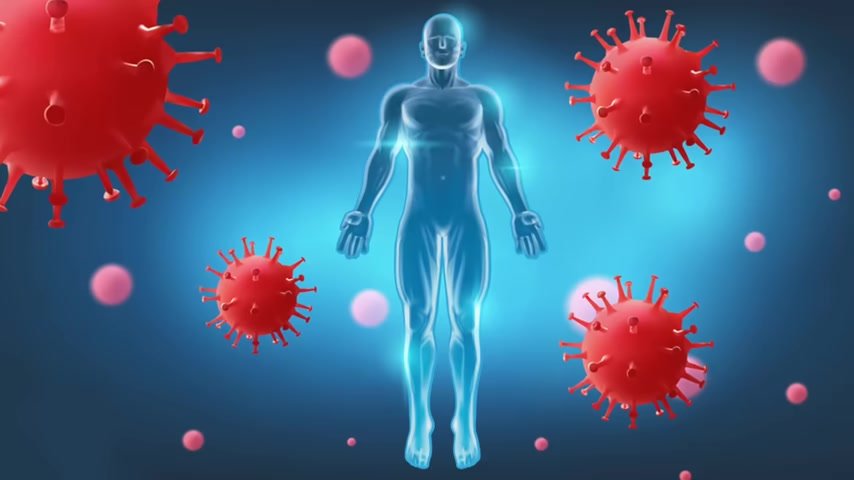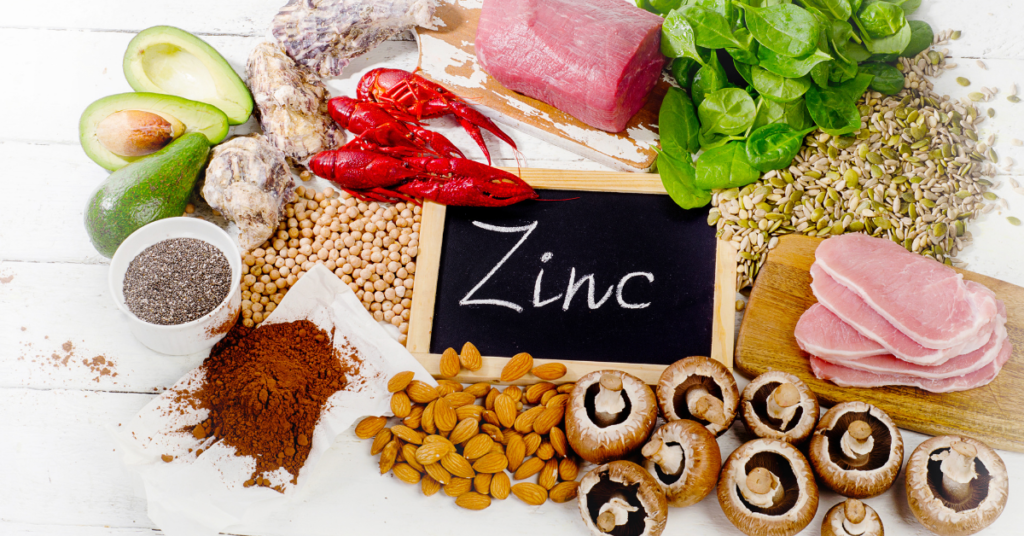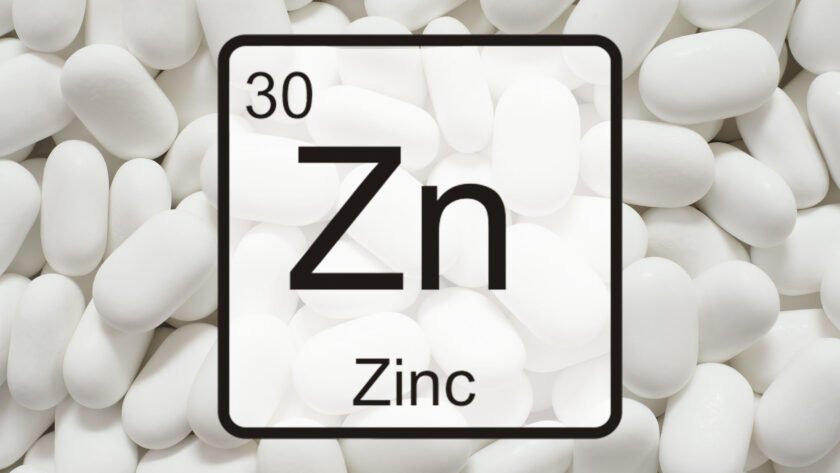Table of Contents
Are you curious about the benefits of zinc but worried about taking too much? This article delves into the important question: How Much Zinc is Too Toxic?
We’ll explore the fine line between getting enough of this essential mineral and exceeding safe limits. Understanding How Much Zinc is Too Toxic? is crucial for maximizing the benefits of zinc while minimizing potential side effects.
Read on to discover the answer to How Much Zinc is Too Toxic? and how to incorporate zinc safely into your diet and supplement routine.
Brief The Article:
How Much Zinc is Too Toxic?
- 300mg of zinc for several weeks can be excessive.
- 225mg of zinc may be appropriate for short-term use in respiratory issues (alongside copper and trace minerals).
- Staying below 100mg of zinc is generally considered safe for long-term use.
Benefits of Zinc:
- Essential for immune function.
- Contributes to overall health.
Risks of Excessive Zinc Intake:
- Too much zinc over long periods can lead to copper deficiency.
- Symptoms of copper deficiency include:
- Nausea
- Vomiting
- Pain
- Diarrhea
- High LDL cholesterol / Low HDL cholesterol
- Anemia
- Pale skin
- Decreased appetite
- Irritability
- Fatigue
- Difficulty building collagen
Zinc and Copper: The Importance of Balance:
- Zinc and copper work together in the body.
- Excessive zinc can deplete copper levels.
- Supplementing with zinc alongside copper and other trace minerals is recommended.
Recommended Zinc Intake:
- Taking more than 300mg of zinc for several weeks can be excessive.
- 225mg of zinc might be appropriate for short-term use in respiratory issues (alongside copper and trace minerals).
- Staying below 100mg of zinc is generally considered safe for long-term use.
Zinc Deficiency:
- While some people take too much zinc, most people are actually deficient.
- The body does not store zinc effectively, requiring regular intake.
How to Get Enough Zinc:
- Eat a diet rich in zinc-containing foods.
- Consider supplementing with zinc, copper, and trace minerals to ensure adequate levels.
Additional Tips:
- Focus on consuming natural sources of zinc like oysters, red meat, poultry, beans, nuts, and whole grains.
- Make sure to read labels carefully when choosing zinc supplements.
- Consult with your healthcare provider to determine the appropriate dosage for you.
So let’s dive into the details…
The Potential Toxicity of Too Much Zinc
So I’ve really been educating people about the importance of zinc on quite a few topics But the problem is there is a point where you can have too much. So this topic is on the toxic effect of zinc.

If you’re trying to support your immune system, zinc is crucial, but the question is how much are you taking? Now if you take large amounts over a short period of time there’s not going to be an issue.
But I’m talking about if you’re taking large amounts over many, many months you could create a copper deficiency.
- Zinc is important for the immune system.
- Taking too much zinc over a long period can lead to copper deficiency.
Symptoms of Copper Deficiency (Caused by Excessive Zinc Intake)

So I just want to talk about the symptoms of a copper deficiency: nausea, vomiting, pain, diarrhea, high LDL, low HDL, swayback (but you’re probably not going to get a swayback, this usually happens before you’re born, but that’s just one of the symptoms),
anemia, pale, decreased appetite, you’re irritable, fatigue. You can also have a problem with building collagen because you need copper to build collagen.
- Symptoms of Copper Deficiency:
- Nausea
- Vomiting
- Pain
- Diarrhea
- High LDL cholesterol / Low HDL cholesterol
- Swayback (rare)
- Anemia
- Pale skin
- Decreased appetite
- Irritability
- Fatigue
- Difficulty building collagen
Zinc and Copper: The Importance of Balance
Zinc and copper work together, too much zinc you deplete copper. So I always recommend when you’re taking zinc, take copper with it as well as all the trace minerals together and that way you never have to worry about it.
- Zinc and copper have a synergistic relationship.
- Excessive zinc can deplete copper levels.
- Supplementing with zinc alongside copper and other trace minerals is recommended.
How Much Zinc is Too Toxic?

And let me just explain what I mean by an extremely high amount of zinc. So let’s say you’re taking 300 milligrams for several weeks, that can be too much.
Typically, if you have some lung problem like pneumonia or some type of lower respiratory issue, you’d want to take 225 milligrams, okay?
But I also recommend take the copper with it, take the trace minerals with it just to make sure you don’t create another problem.
And a lot of people consume a lot more than that, but the threshold seems to be like a hundred milligrams. If you stay below that you can take that for a good period of time without having a problem.
- 300mg of zinc for several weeks can be excessive.
- 225mg of zinc may be appropriate for short-term use in respiratory issues (alongside copper and trace minerals).
- Staying below 100mg of zinc is generally considered safe for long-term use.
Zinc Dosage and Duration Considerations
But if they just start going over a hundred, you start creating problems with copper. It’s not just taking zinc over a period of time, it’s the amount of zinc that you’re taking and then you have the time variable as well.
- Both the dosage and duration of zinc intake are important factors to consider for avoiding copper deficiency.
Zinc Deficiency: A Common Problem
And on the flip side too, it’s out this conversation about zinc being toxic in large amounts, most people are deficient in zinc and our bodies do not retain zinc for any period of time. So we’re constantly losing zinc and we need it.
- Most people are zinc deficient.
- The body does not store zinc effectively, requiring regular intake.
The Importance of Dietary Zinc and Supplementation

So if you’re not consuming foods that have zinc, chances are you’ll probably be deficient and there’s a whole series of symptoms with that.
You want to think about just the right amount, you want to make sure you have the foods with enough zinc. But if you’re just taking with copper and all the trace minerals, you’re gonna be totally fine.
- Dietary zinc is essential.
- Supplementing with zinc, copper, and trace minerals can help maintain adequate levels.
Summary
If you’re trying to support your immune system, zinc is crucial. But, it is possible to have too much zinc. If you take large amounts of zinc over a short period of time, there shouldn’t be an issue. But, if you take large amounts over a long period of time, this could create a copper deficiency.
Copper deficiency symptoms:
• Nausea
• Vomiting
• Pain
• Diarrhea
• High LDL
• Low HDL
• Swayback
• Anemia
• Paleness
• Decreased appetite
• Irritability
• Fatigue
• Problems building collagen
- Zinc and copper work together. If you have too much zinc, you can deplete copper. When you take zinc, it may be beneficial to take copper with it, as well as all of the trace minerals together. This way, you don’t have to worry about a deficiency.
- An example of an extremely high amount of zinc would be if you were to take about 300mg for several weeks.
- Typically, if you have a lung issue, you may want to take 225mg of zinc along with copper and trace minerals. If you were to take below 100mg of zinc, you could be fine to continue taking it for a longer period of time.
- Although there is a such thing as zinc toxicity in large amounts, many people are actually deficient in zinc. The body doesn’t retain zinc, so it’s important to consume foods that contain zinc. You want to think about the amount of zinc you’re getting, and also consider taking it with copper and trace minerals.
Additional Resources:
FAQ
How much zinc is an overdose?
Zinc overdose, also known as zinc toxicity, can occur when intake significantly exceeds the recommended daily allowance (RDA). The tolerable upper intake level (UL) for zinc is:
- 40 mg/day for adults
- 34 mg/day for adolescents 14-18 years old
- 23 mg/day for children 9-13 years old
Consuming amounts above these levels regularly can lead to adverse effects. Acute zinc toxicity can occur with ingestions of 200-800 mg of zinc or more. However, it’s important to note that individual tolerance can vary based on factors such as age, health status, and overall nutritional intake.
What is an unsafe amount of zinc?
An unsafe amount of zinc is generally considered to be any dose that consistently exceeds the established upper intake levels. While short-term consumption of higher doses may not cause immediate harm, prolonged intake of excessive zinc can lead to:
- Interference with copper absorption, potentially causing anemia
- Suppression of immune function
- Reduced levels of high-density lipoprotein (HDL) cholesterol
- Gastrointestinal distress, including nausea, vomiting, and diarrhea
Is 100mg of zinc too much?
Yes, 100mg of zinc is generally considered too much for regular consumption. This amount is more than twice the established upper intake level of 40mg per day for adults. Regularly taking 100mg of zinc can lead to:
- Acute gastrointestinal symptoms like abdominal pain and nausea
- Long-term issues such as copper deficiency anemia
- Impaired immune function
- Altered taste perception
Is it safe to take 200 mg of zinc?
No, taking 200 mg of zinc is not safe for regular consumption and can lead to severe zinc toxicity. This dose is five times the upper intake level and can cause:
- Severe gastrointestinal distress, including vomiting and diarrhea
- Rapid onset of copper deficiency
- Potential damage to the nervous system
- Impairment of immune function
- Risk of renal damage
In some cases, such high doses are used for short-term medical treatments (like zinc gluconate lozenges for colds), but this should only be done under strict medical supervision. For general supplementation, 200 mg of zinc is excessive and potentially dangerous.
How much zinc is too much for a woman?
For adult women, the upper intake level for zinc remains at 40 mg per day, the same as for men. However, women may have specific considerations:
- Pregnant women: The UL remains 40 mg, but requirements increase to 11-12 mg/day
- Lactating women: The UL is still 40 mg, with increased needs of 12-13 mg/day
- Women on hormonal contraceptives: May require slightly more zinc due to altered metabolism
Excess zinc in women can lead to:
- Interference with iron and copper absorption, potentially exacerbating anemia risks
- Hormonal imbalances, as zinc plays a role in hormone production
- Gastrointestinal issues and altered taste perception
Women should be particularly cautious with zinc supplementation and consult healthcare providers, especially during pregnancy or when planning to conceive.
Zinc overdose remedy
If you suspect a zinc overdose, take the following steps:
- Stop taking all zinc supplements immediately
- Drink plenty of water to help flush out excess zinc
- Consume foods rich in copper, such as nuts, seeds, and shellfish, to counteract zinc’s effects on copper absorption
- Increase intake of dietary fiber to help bind excess zinc in the digestive tract
- Consider taking a multivitamin without zinc to ensure balanced nutrient intake
- Activated charcoal to reduce zinc absorption
- Chelation therapy in extreme cases
- Monitoring of zinc and copper levels through blood tests
Zinc toxicity treatment at home
For mild cases of zinc toxicity, home treatment may be possible under the guidance of a healthcare provider:
- Immediately discontinue all zinc supplements
- Increase fluid intake to promote zinc excretion
- Consume a balanced diet rich in copper, iron, and calcium to help counteract excess zinc
- Consider temporary supplementation with copper under medical supervision
- Monitor for improvements in symptoms such as nausea, vomiting, or altered taste
Too much zinc symptoms skin
Excessive zinc intake can manifest in various skin-related symptoms:
- Acne-like rashes or worsening of existing acne
- Skin irritation or inflammation
- Dry, flaky skin
- Delayed wound healing
- In severe cases, skin lesions or ulcerations
While zinc is essential for skin health, too much can disrupt the balance of other nutrients crucial for skin function. If you experience persistent skin issues while taking zinc supplements, consult a dermatologist or healthcare provider to assess your zinc levels and overall nutritional status.
How much zinc is too much for a man?
For adult men, the upper intake level for zinc is 40 mg per day, the same as for women. However, men have some specific considerations:
- Prostate health: Excessive zinc may increase prostate cancer risk in some men
- Testosterone levels: While zinc is important for testosterone production, excess amounts can potentially disrupt hormonal balance
- Fertility: Very high zinc levels may negatively impact sperm quality
Men should be cautious with zinc supplementation, especially if they:
- Have a history of prostate issues
- Are taking medications that interact with zinc
- Have a condition that affects zinc metabolism, such as hemochromatosis
As with women, men should consult healthcare providers before starting any zinc supplementation regimen, particularly if they have pre-existing health conditions.
Zinc toxicity neurological symptoms
Zinc toxicity can have significant neurological impacts. Symptoms may include:
- Headaches and dizziness
- Lethargy and fatigue
- Difficulty with coordination and balance
- Numbness or tingling in extremities
- In severe cases, seizures or loss of consciousness
Long-term zinc toxicity may lead to more serious neurological issues:
- Copper deficiency myelopathy, causing spinal cord problems
- Peripheral neuropathy
- Cognitive impairment or memory problems




